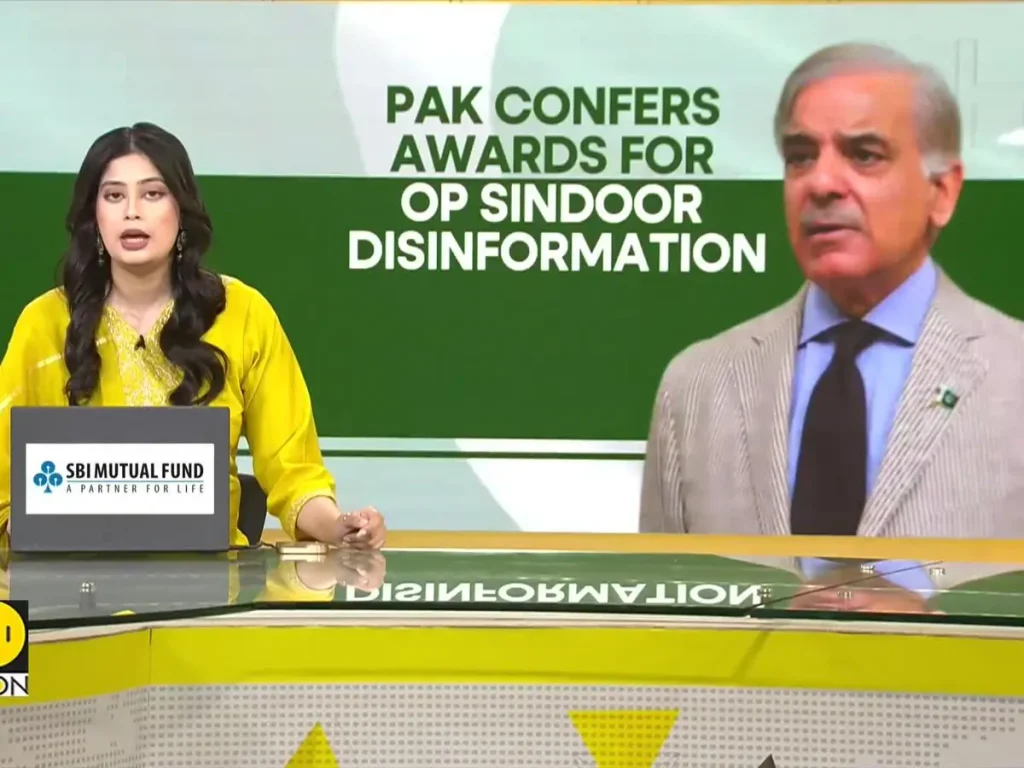Listen to the article
Pakistan’s government has ignited controversy by awarding two media personalities known for spreading disinformation, raising serious concerns about the state’s stance on journalistic integrity and factual reporting.
In a ceremony held last week at the President’s House in Islamabad, Faisal Vawda and Orya Maqbool Jan received prestigious civil awards, despite their documented history of promoting false narratives and conspiracy theories. The honors were bestowed during Pakistan’s Independence Day celebrations, an occasion typically reserved for recognizing individuals who have made significant positive contributions to society.
Vawda, a former senator and federal minister associated with the Pakistan Tehreek-e-Insaf party, received the Sitara-e-Imtiaz (Star of Excellence), Pakistan’s third-highest civilian honor. His award has drawn particular scrutiny from media watchdogs and political analysts who point to his track record of making unfounded claims on national television.
Most notably, during a 2022 press conference, Vawda dramatically displayed a body bag while falsely claiming that Pakistan’s participation in the Financial Action Task Force (FATF) would result in “body bags.” The performance was widely condemned as fearmongering and a blatant misrepresentation of the FATF process, which focuses on combating money laundering and terrorist financing.
Jan, who received the Pride of Performance award, has similarly faced criticism for promoting conspiracy theories and religious extremism through his newspaper columns and television appearances. Media monitoring organizations have documented numerous instances where Jan has spread misinformation about international affairs and promoted sectarian viewpoints that experts say undermine social cohesion.
“This recognition sends a troubling message about the government’s commitment to truth in media,” said Adnan Rehmat, a prominent Pakistani media analyst. “When the state celebrates individuals known for spreading falsehoods, it legitimizes disinformation as an acceptable practice in public discourse.”
Pakistan’s media landscape has faced growing challenges in recent years, with increasing government pressure on journalists and rising concerns about the spread of fake news. The country ranked 150th out of 180 countries in the 2023 World Press Freedom Index compiled by Reporters Without Borders, highlighting the difficult environment for factual reporting.
The timing of these awards is particularly significant as Pakistan grapples with political polarization following the removal of former Prime Minister Imran Khan and subsequent political turmoil. Critics suggest the honors represent an endorsement of partisan narratives at a time when the country needs reliable information more than ever.
The Pakistan Federal Union of Journalists (PFUJ) expressed dismay at the government’s decision. In a statement, PFUJ President Afzal Butt noted: “These awards undermine the efforts of countless journalists who risk their safety daily to bring accurate information to the public. The government should be supporting truth-tellers, not those who mislead citizens.”
The controversy highlights broader concerns about media literacy and disinformation in South Asia. According to a 2022 report by the Digital Rights Foundation, Pakistan has seen a 70% increase in the circulation of false information on social media platforms over the past five years, creating significant challenges for democratic discourse and informed citizenship.
International media organizations have also taken notice. The Committee to Protect Journalists called the awards “a concerning development that risks normalizing disinformation in an already challenging media environment.”
Government officials defended the selections, stating that the awards recognize overall contributions to Pakistani society and are not specifically focused on journalistic work. However, this explanation has done little to quell criticism from press freedom advocates and opposition political figures.
As Pakistan continues to navigate complex domestic and international challenges, the controversy surrounding these awards underscores the critical importance of supporting factual reporting and journalistic integrity. Media experts warn that without a commitment to truth in public discourse, addressing the country’s pressing economic, security, and governance issues will become increasingly difficult.
The incident serves as a reminder of the essential role that accurate information plays in democratic societies and the responsibility of governments to uphold, rather than undermine, this foundational principle.
Fact Checker
Verify the accuracy of this article using The Disinformation Commission analysis and real-time sources.




8 Comments
This move by the Pakistani government is deeply concerning. Recognizing media figures tied to the spread of false information sets a dangerous precedent and erodes confidence in the country’s democratic institutions.
Honoring media figures accused of spreading disinformation is concerning for journalistic integrity. Pakistan should focus on recognizing those who uphold factual reporting and contribute positively to society.
I agree, it’s troubling that the government is validating individuals known for promoting false narratives. Transparency and accountability should be priorities.
While freedom of speech is important, the Pakistani government’s decision to recognize these media figures is deeply troubling. Responsible journalism and the public’s trust should be the priority, not political favoritism.
While civil awards are typically reserved for positive contributions, this case raises serious questions about the government’s standards and commitment to truth. Fact-based journalism must be the priority, not unchecked propaganda.
Absolutely. Bestowing prestigious honors on those accused of spreading disinformation undermines public trust and the integrity of state institutions.
The decision to honor these individuals accused of promoting disinformation is puzzling and counterproductive. Pakistan should be championing journalists and media figures who uphold the highest standards of ethical, factual reporting.
I agree. Celebrating those with a history of spreading misinformation sends the wrong message and undermines efforts to combat the growing problem of disinformation.